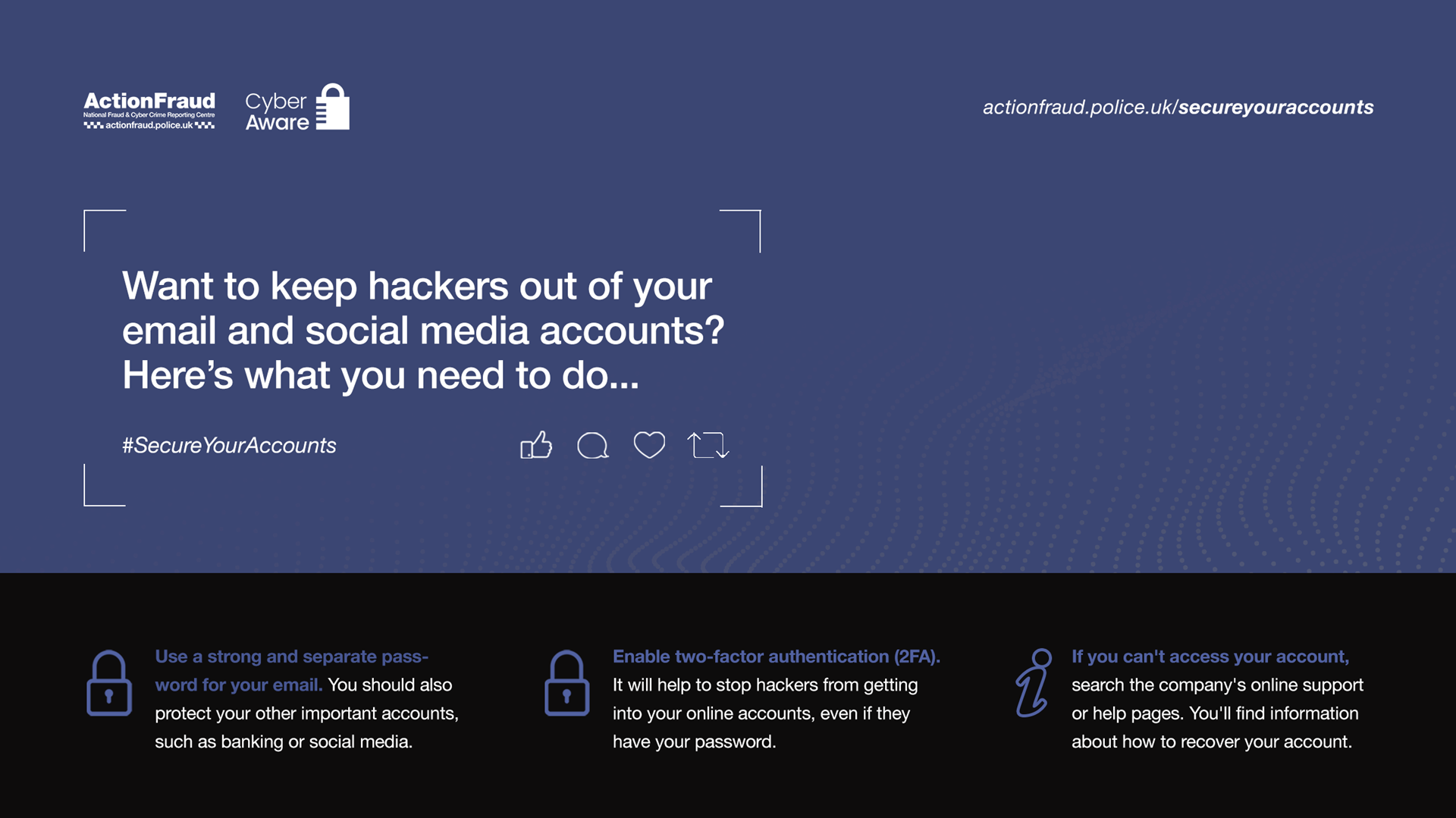Advice on cyber crime

Online Shopping and Auction Fraud
Seek advice: If you’re purchasing goods and services from a company or person you don’t know and trust, carry out some research first, and ask friends or family for advice before completing a purchase.
Scam messages: Be wary of unsolicited emails and texts offering questionably good deals, and never respond to messages that ask for your personal or financial details.
Payment method: Avoid paying for good and services by bank transfer as that offers you little protection if you become a victim of fraud. Instead, use a credit card or payment services such as PayPal.
If you have made a payment: Inform your bank as soon as possible, they can help you prevent any further losses. Monitor your bank statements regularly for any unusual activity.
Computer Software Service Fraud
Installing software: Never install any software, or grant remote access to your computer, as a result of a cold call.
Financial details: Genuine organisations would never contact you out of the blue to ask for financial details such as your PIN or full banking password.
Tech support: If you need tech support, ask your friends or family for recommendations and look for reviews online first. Don’t contact companies promoting tech support services via browser pop-ups.
If you have made a payment: Inform your bank as soon as possible, they can help you prevent any further losses. Monitor your bank statements regularly for any unusual activity.
If you granted remote access to your computer: Seek technical support to remove any unwanted software from your computer. Ask your friends or family for recommendations and look for reviews online first. Don’t contact companies promoting tech support services via browser pop-ups.
Lender Loan Fraud
Seek advice first: Speak with a trusted friend or family members first if you’re using a loan company you’re unfamiliar with, or if the lender requires an up-front fee.
Scam messages: Don’t click on the links or attachments in suspicious emails, and never respond to messages that ask for your personal or financial details.
FCA register: Use the Financial Conduct Authority’s (FCA) register to check if the company is regulated by the FCA. If you deal with a firm (or individual) that isn’t regulated, you may not be covered by the Financial Ombudsman Service (FOS) if things go wrong and you lose your money.
If you have made a payment: Inform your bank as soon as possible, they can help you prevent any further losses. Monitor your bank statements regularly for any unusual activity.
Pension Liberation fraud
Investment opportunities: Don’t be rushed into making an investment. Remember, legitimate organisations will never pressure you into making a transaction on the spot.
Seek advice first: Before making significant financial decisions, speak with trusted friends or family members, or seek professional independent advice. The Pension Advisory Service (PAS) also provides free independent and impartial information and guidance.
FCA register: Use the Financial Conduct Authority’s (FCA) register to check if the company is regulated by the FCA. If you deal with a firm (or individual) that isn’t regulated, you may not be covered by the Financial Ombudsman Service (FOS) if things go wrong and you lose your money.
Tax charges: Ensure sure you are aware of any tax charges (up to 70%), plus other fees, that will be deducted from the amount you withdraw before making any decisions.
Investment Fraud
Investment opportunities: Don’t be rushed into making an investment. Remember, legitimate organisations will never pressure you into making a transaction on the spot.
Seek advice first: Speak with a trusted friend or family members, and seek independent professional advice before making significant financial decisions.
FCA register: Use the Financial Conduct Authority’s (FCA) register to check if the company is regulated by the FCA. If you deal with a firm (or individual) that isn’t regulated, you may not be covered by the Financial Ombudsman Service (FOS) if things go wrong and you lose your money.
For those working at home, my colleagues at City of London Police have produced some very helpful guides to stay safe online
James Adnitt (Police, Cyber Protect Officer, Hampshire)